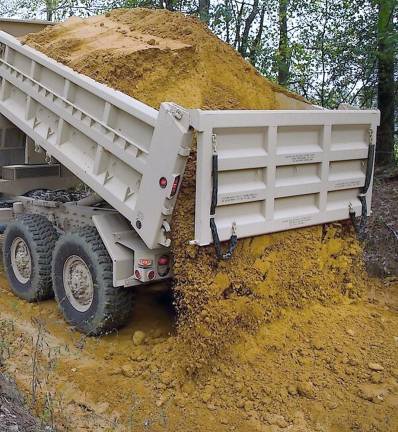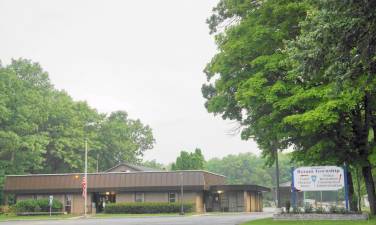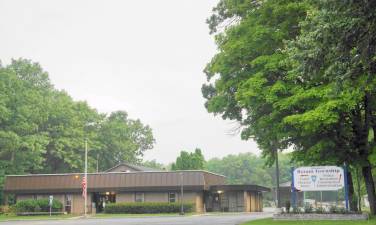‘Dirty dirt’ can cost a homeowner hundreds of thousands, Byram warns
Byram. The council is considering an ordinance regulating the importation of soil, after fill of unknown origin was trucked to four properties in the township. Property owners need to understand the impact on their neighbors, environment, and pocketbooks, council members say.

Four property owners in Byram have trucked in large amounts of dirt without showing that the soil is clean or where it came from, leading the township council to revisit its soil importation ordinance.
Township manager Joseph Sabatini told the council at its Nov. 15 meeting that soil at the four properties had construction debris mixed in, resulting in a question mark about its contents.
He said there is significant runoff into a lake from these properties that is possibly also affecting a tributary, wetlands, and flood zone, .
Sabatini asked the council for direction. He said he needed a tool, like a permitting ordinance, to manage soil importation effectively. The permits would regulate the amounts of soil brought in and types of property to which the soil is delivered.
In 2019, he said, the planning board asked the township engineer to draft a soil importation ordinance.
Mayor Alexander Rubenstein said property owners need to be informed about the consequences of bringing in questionable fill, which can result in a $200,000 to $300,000 clean-up bill for which the property owner is responsible.
He said he did not want to annoy homeowners making minor improvements and was mainly concerned about large amounts of dirt coming from unknown sources out of town. He said the township should protect property owners — and their neighbors and the township’s natural resources — by helping them through the process.
Councilman Harvey Roseff agreed education is needed, along with the “balancing act of an ordinance.” He said the problem was created at Forest Lakes when 40 to 50 trucks dumped soil down a cliff over more than six days.
Roseff said Byram has to be able to enforce ordinances in a timely manner, and clearly define what “clean fill” is without being too restrictive.
Councilman Jack Gallagher agreed residents need to be educated, especially when “40 tandem loads of fill dirt” are involved. Once the dirt is “dumped on your property, you own it,” he said.
Councilwoman Cris Franco said landscapers assured her it was always in the normal course of business to track where soil comes from. She too believes the public needs to be educated because of the township’s closed proximity to waterways.
Deputy Mayor Raymond Bonker said the township shouldn’t do much about small quantities of soil. The planning board’s recommendations should be used as a starting point, he said.
Forest Lakes Board member Greg Smith told the board it is on record recommending an ordinance. He said he agreed that education is the number one piece.
New law requires provider registration
For more than 10 years, the New Jersey State Commission of Investigation has been reporting on soil and fill providers that circumvent state laws restricting the use of recycled soil and fill materials. As a result of the commission’s investigations, Gov. Phil Murphy signed the so-called “dirty dirt” law, which went into effect in April 2020, requiring soil and fill recycling businesses to obtain licenses from the New Jersey Department of Environmental Protection (DEP).
According to the New Jersey law firm Greenbaum, Rowe, Smith & Davis LLP, “It would be prudent for any developer or property owner engaging the services of a business or individual to collect, transport, deliver, broker, acquire, sell or otherwise engage in the provision of ‘soil and fill recycling services’ to request that the provider produce evidence of its registration with the DEP.”

